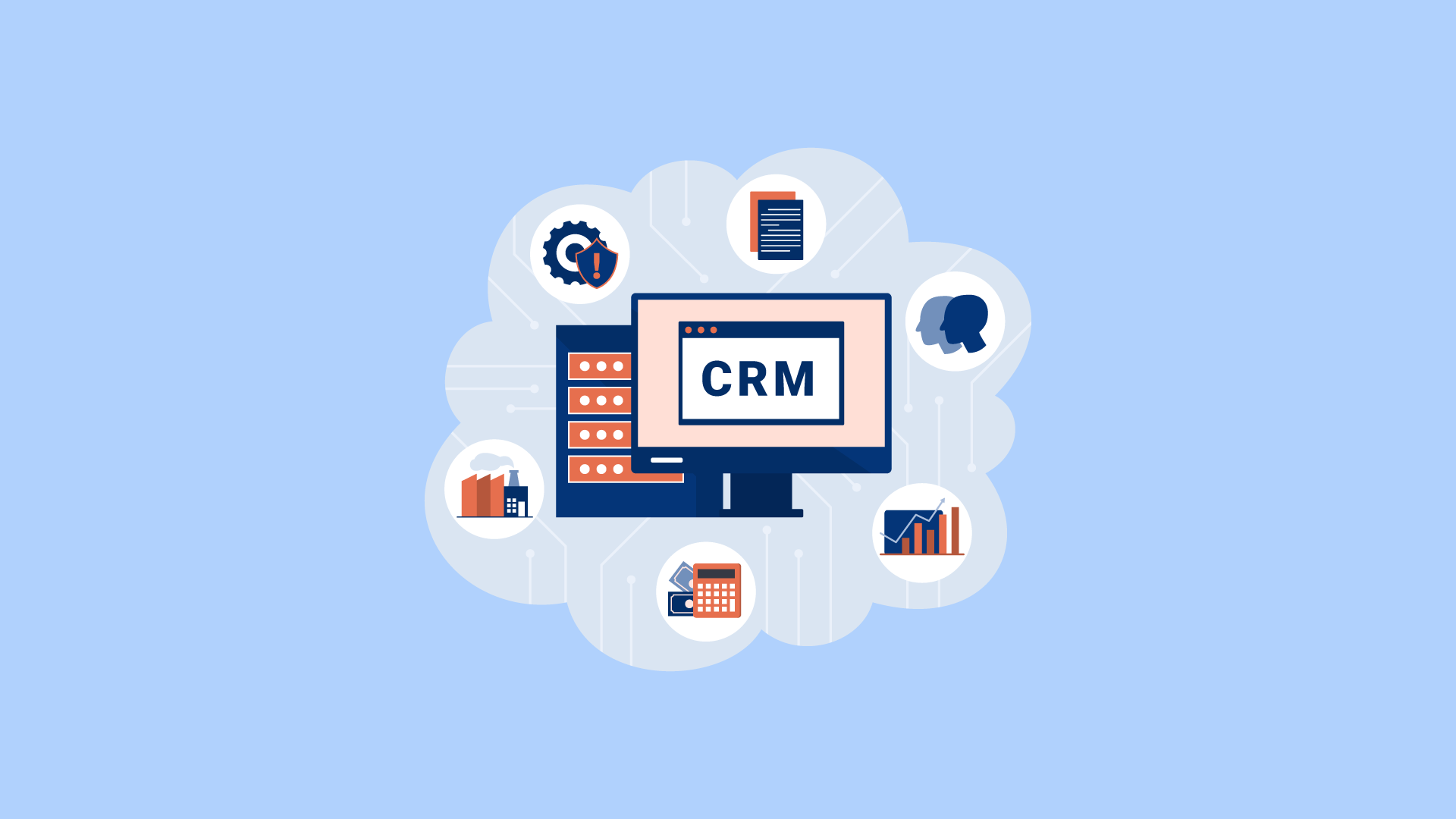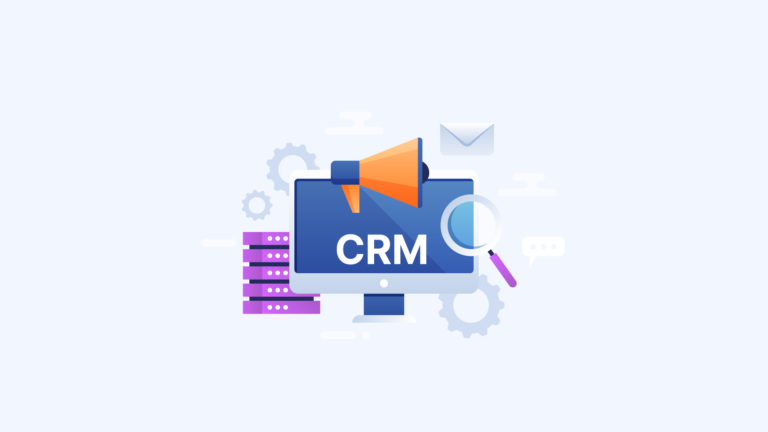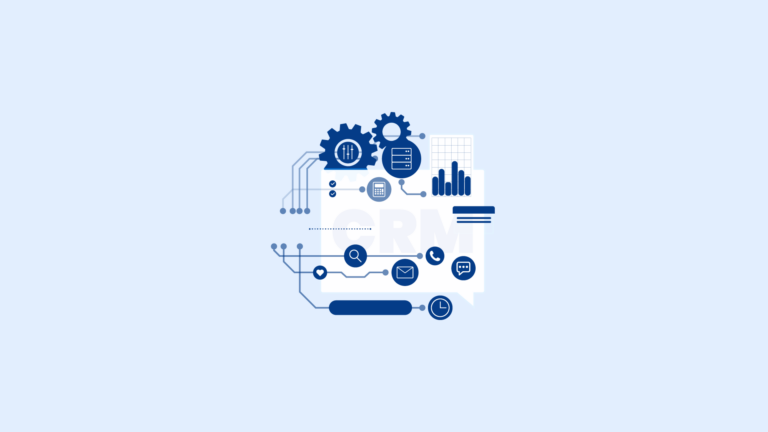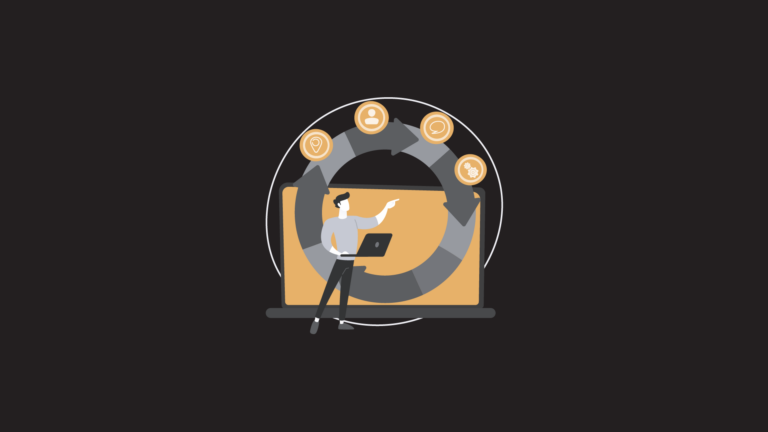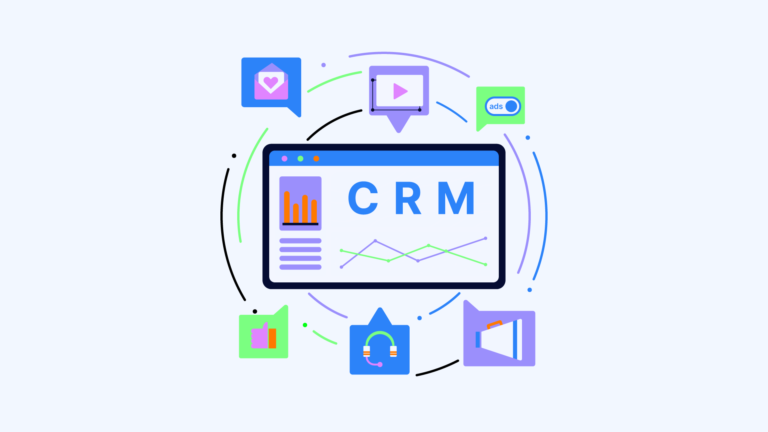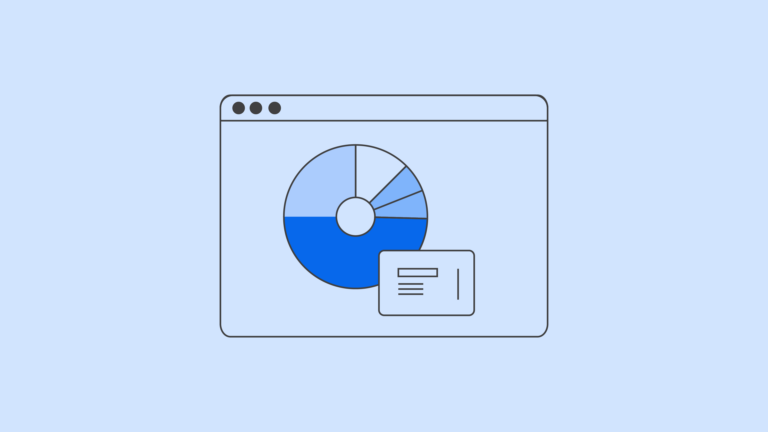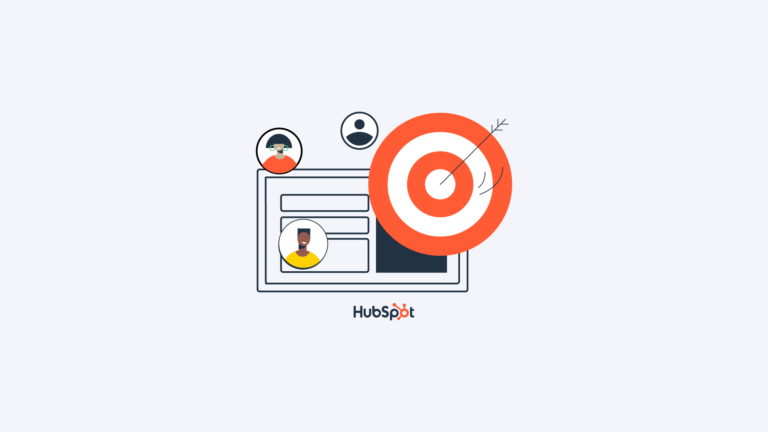What type of CRM software should I choose? There are so many options out there, and choosing the right one can be overwhelming. Which one is right for me? How do I know if it’s the best option?
The answer to that question depends on your business goals, how much time you have to devote to managing your business processes, and what features you need to meet those goals.
In this article, I will discuss four different types of CRM software strategic, operational, analytical and collaborative CRM. You will learn about each one of them, as well as their features and benefits. This way, you will be able to make a better decision when choosing which one is right for you.
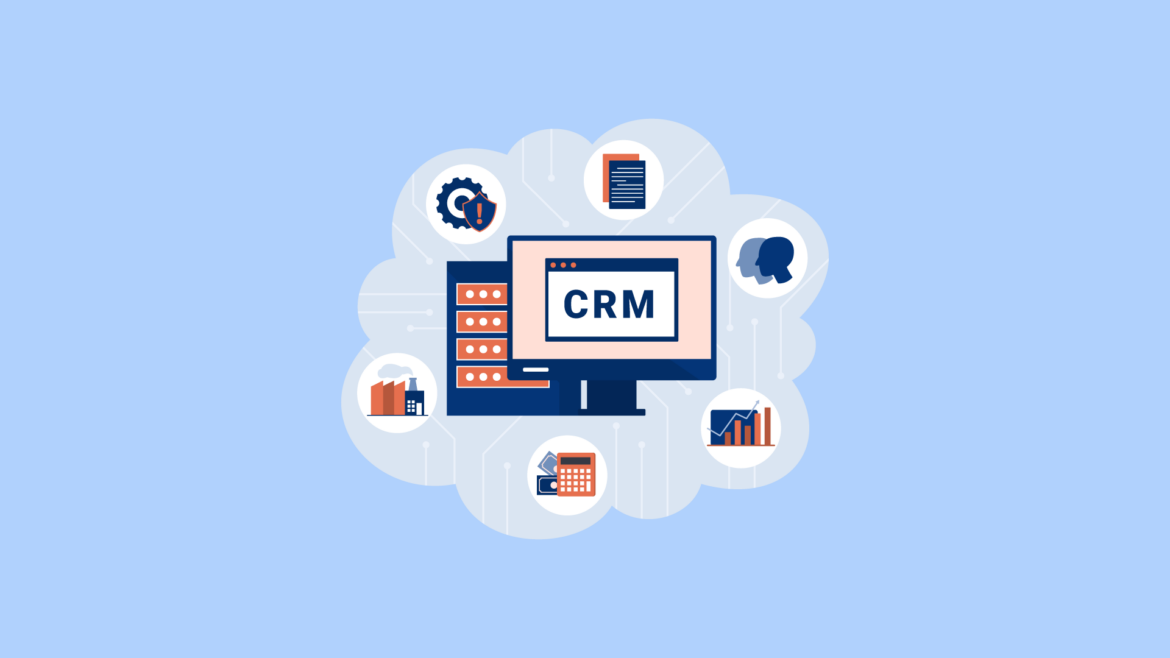
What is a CRM?
A CRM (Customer Relationship Management) system is an application designed to help businesses manage customer relationships. It helps companies track leads, nurture customers, and build long-term relationships with clients. A CRM allows companies to organize data in order to improve sales performance, increase productivity, and streamline operations.
What is a CRM?
Customer relationship management (CRM) is a tool you can utilize to manage all aspects of customer relationships. From contact information, to purchase history, service requests, leads, and marketing campaigns, CRM allows you to keep track of everything. Whether you’re in an industry like retail, healthcare, manufacturing, or any other type of business, having a CRM system will help you get ahead.
The benefits of CRMs include better customer service, a better insight into relationships with customers and prospects, better lead management, and finally, more closed deals. Who wouldn’t want that?
There are many different solutions available to help companies get started with customer analytics. Some are free while others cost money. You should choose what works best for your needs. Some tools are built specifically for small businesses. These are usually cheaper than enterprise-level software.
Why CRM Software? Benefits of CRM
The first thing you need to know about CRM software is that it’s not just for big companies. Smaller businesses can benefit from using this technology as well. It helps them stay organized and be able to effectively communicate with their clients.
A CRM is important because they allow you to:
- Keep track of customer interactions
- Manage sales leads
- Improve productivity
- Get insights into the performance of your employees
- Communicate efficiently with your team members
- Analyze data
- Make informed decisions
The 4 Different Types of CRM Software
In the past twenty years, companies have focused on selling products and services instead of focusing on customers. Nowadays, customers are more powerful and influential than ever before. Companies must adapt to changing customer demands and expectations.
Customer relationship management (CRM) software helps companies manage relationships with existing and potential customers. CRM systems help businesses understand their customers’ needs and provide them with the tools they need to reach out to those customers.
To help you choose th5 right CRM for your business we have compiled the best 5CRM software to know.
There are four main types of CRM software applications:
- Strategic CRM
- Operational CRM
- Analytical CRM
- Collaborative CRM
Delight your customers
FreshDesk
Engage in more meaningful conversations every day, across every channel, with every customer.
Strategic CRM
Organizations looking to increase sales, profits and customer satisfaction need to deploy CRM strategically. CRM solutions help a company deliver a meaningful customer experience, around 68% of marketing leaders say their company is increasingly competing mostly based on customer experience.
Most CRMs available today fall short of providing their users with a real strategic view of their customers’ experience.
In contrast, Strategic CRM focuses on maintaining a long-term relationship with each customer. It is usually included as part of collaborative CRM software and has similar capabilities and related benefits.
Using a strategic CRM, you’ll be able to manage your customers’ needs and expectations and create a personalized relationship with them. You’ll be able to provide exceptional service and deliver value to your clients while improving your internal processes and gaining insight into your company’s strengths and weaknesses.
A strategic CRM will help you stay ahead of the competition, improve your sales and marketing operations, and keep your employees motivated.
CRM solutions are designed to help you manage your company’s interactions with its customers. These interactions should result in increased sales, profits, and/or customer satisfaction. However, many companies struggle to effectively implement CRM because they lack an effective strategy.
A CRM strategy involves three key components:
1. Identifying customer needs
2. Developing a plan to meet those needs
3. Executing the plan.
Companies that fail to execute their CRM strategies often end up wasting resources and missing out on opportunities.
Features
Business Analysis
A CRM strategy must also focus on the exact business needs. This means that you need to survey your customers, prospects, and partners to understand what they think about your product or service.
This feature includes a series of surveys and questionnaires for top-level sales, marketing, and financial executives to gather their real perceptions of the strategies they should adopt and the results they expect from applying them in the end. The project management feature gives you a 360-degree view of every aspect of your strategy, from management to technical, financial, sales and marketing.
360-degree project management
The next important step in the design of your CRM strategy is to create a motivated and valuable project team. Each participant should be a skilled and dedicated professional because these members will be the key decision-makers in the process.
Cross-functional collaboration
Every department should collaborate on every project, and the implementation of the operations carried out within each department. There can always be an emphasis on constructive solutions and the results of the techniques. Strategic Collaborative Relationship Management ensures that such collaborations and awareness of cross-departmental activities occur.
Benefits
- Improves customer experience by effectively marketing, and selling.
- Analyzes customer behaviors and trends.
- It helps you understand how your customers interact with your business by showing you what they purchase from your business and when, why they purchase from your business, and how they solve problems using the service.
- Covers every aspect of customer interaction including marketing, sales, trends and services, behavior, and motivators.
- Helps companies fix their customers’ problems quickly and efficiently.
Free CRM
HubSpot
A CRM platform that’s powerful and easy to use.
Operational CRMs
Operational CRM systems allow you to support and enhance your company’s customer service team. It is specially designed to help facilitate activities related to customers. An operational CRM can be used for every interaction that your business has with current and future customers.
Companies use this type of customer relationship management system to streamline their functions, empower staff to manage customers, and ensure they provide excellent service. Operational CRM software is notably focused on the prime business areas, which are sales, service, and marketing.
It is the most encompassing of all the other types of CRM. These systems help companies generate leads, turn them into contacts, and provide a much-needed base from which to capture and retain customers for an extended period.
Features
Customer Service Automation
Automated customer service allows you to improve the customer service experience by automating the processes used to communicate with your customers. One of the ways it does this is by providing self-service options for your customers.
These actions include things like establishing more natural ways to pay online, scheduling/ordering for a good or service using your mobile device, etc., Operational CRM tools include live chat, email responses, offline help, or knowledge bases for navigating the customer (e.g. FAQs, blogs, etc.). Chatbots are also increasingly used as a way to address customer concerns.
Sales Automation
Sales automation is the use of technology to manage sales activities. It simplifies the sales process for companies, allowing them to spend more time communicating directly with prospective clients and solidifying the loyalty and trust of current clients.
Sales automation features of operational CRMs conduct activities such as email scheduling, scheduled meetings with prospects, allowing prospects to arrange a meeting directly with sales representatives and organizing and recording sales calls. Extra features such as sales record generation, clearer sales records, and easier lead ranking are also available.
Marketing Automation
Marketing Automation is an integral part of any modern marketing strategy. It allows marketers to automate repetitive tasks, freeing them up to focus on higher-value activities.
Marketing automation tools allow you to create automated emails, track responses, send follow-ups, and even schedule future messages. These tools help you reach your customers at the right time, with the right message, and in the best format.

Start for Free
Agile CRM
The best CRM software for scheduling and appointments.
Benefits
- Managing a broad range of marketing initiatives effectively.
- Tracking relevant data from three crucial departments.
- You can optimize sales and reach sales revenue goals and targets by using the right tools and processes.
- You can maximize the best opportunities for campaigns and event-based offers.
- Giving the customer the ability to choose between different customer service options.
Examples
Examples of operational CRM systems are HubSpot, Salesforce, and ZenDesk. These tools help companies manage customer relationships across multiple channels.
Delight your customers
FreshDesk
Engage in more meaningful conversations every day, across every channel, with every customer.
Analytical CRMs
An analytical CRM is much concerned with gathering data about its customers and analyzing it for patterns and trends to improve its service. Its modus operandi is capturing, interpreting, segmenting, storing, modifying, processing, and publishing all the data from the consumer.
This data includes the customer’s contact info (customer email address), feedback, and any other related information that may help identify patterns or preferences.
They help the company to better comprehend how a product or service impacts or will impact its customers. It enables companies to make departments like customer service and even sales more customer-oriented. With these advantages, alongside in-depth data analytics, the company is better able to understand its market wants or needs than ever before.
Features
Analytics systems work with all customer information and collate details from every part of the enterprise. Every department, team, or office that deals with customers can leverage such systems when storing analytic data into its primary database.
Customer Segmentation & Prioritization
Analytics CRM provides insights into what the market looks like, revealing customer characteristics that allow businesses to group customers into standard groups. That means you can tailor your products or services to suit each group. You can also generate a new index using data analytics.
OLAP Tools
OLAP stands for online analytical processing. It is a highly capable tool for finding and unearthing data. Its capabilities include unlimited reporting capacity, complex statistical analysis, and insightful scenarios that ask questions about possible hypothetical situations in preparation for the future happening.
These tools form the core of Business Analytics tools that enable you to peel back layers and get to the essential data you need to take action. In short, it’s the tool that allows you to see the big pictures, to isolate valuable data from the ones that you don’t currently need to take action.
Benefits
- It makes advertising strategies more effective.
- It helps you target opportunities and potential customers by knowing the best content that will attract them.
- It increases customer retention rates.
- It helps strengthen customer loyalty.
- It allows you to understand when and which clients are ready for Cross-sell or upsell opportunities.
- It helps to increase the number of sales by analyzing what sells and what doesn’t.
- It helps identify and work out your company’s/staff’s weaknesses.
- It helps in the development of customer relationships.
Examples
Good examples include Base CRM, Insightly, and Zoho Analytics.
No credit card required.
Transform data into insights and actions in minutes.
Collaborative CRMs
Collaboration CRM requires different groups within an organization to share client information. Previous CRMs focused on marketing and sales, however, for this type, the emphasis is on customer service.
This data includes the customer’s contact info (customer email address), feedback, and any other related information that may help identify patterns or preferences.
Collaborate CRM allows you to significantly improve information flows among departments like marketing and sales, and also supports the staff at work within these departments. Departments that operate independently of each other, or have difficulties in addressing customers’ concerns, can use Collaborate CRM.
The whole aim is to accommodate customers truly: even if it involves giving departments access to sensitive information or allowing them to see what others are doing.
Features
The main features are interaction management and channel management.
Interaction Management
It helps to record all the important events along the entire customer lifecycle. You can always go back and re-access the map to make changes or reward loyalty. This feature allows you to segment contacts into different groups based on various factors and criteria.
Channels Management
On the other hand, this feature gives the customer a variety to choose from when it comes to channels of communication. There are many ways to contact people, including text messages (SMS), phone calls, emails, online chats, and social media platforms (Facebook, Twitter, LinkedIn, Instagram, Snapchat, YouTube, etc.), etc. You need to be active and respond quickly to any channels your customers use.
Other features of collaborative CRM include video conference applications, and integration with productivity apps like Google Drive, Slack, DropBox, etc.
Benefits
Collaborate CRM is the first tool to help businesses connect the dots between sales, marketing, customer service, product development, operations, finance and the entire team.
Collaborate CRM helps companies get closer to their customers through a single source of truth. Although 90% of executives believe that having access to a single source of truth with their CRM is important, only 32% of companies say their current technology offers this today.
Companies can see how each team interacts with customers, giving them access to the complete picture of the customer journey. All interactions are recorded, making it easy to understand the impact of any interaction.
- Collaborative CRMs help companies collect customer information from different departments and share it with all the teams within an organization.
- Aligning similar goals among different teams.
- A comprehensive approach to the entire customer experience.
- Providing customer support through every channel.
- A unified view of the customer that includes everything from their social media activity to their web browsing history.
Delight your customers
FreshDesk
Engage in more meaningful conversations every day, across every channel, with every customer.
CRM Software Buying Considerations
A business must consider the following points when choosing a CRM system:
Business Strategy and Processes
A business must understand what it wants to achieve through using a CRM system.
For example, if a company sells products online, then it will need an integrated solution that covers all aspects of customer service, including product information, shipping details, billing, returns, and customer feedback. If a company provides services, then it may require a CRM system that includes client relationship management, project management, task tracking, and scheduling.
Business Requirements
The whole aim is to accommodate customers truly: even if it involves giving departments access to sensitive information or allowing them to see what others are doing.
The whole aim is to accommodate customers truly: even if it involves giving departments access to sensitive information or allowing them to see what others are doing.
No credit card required.
Fresh Sales
An integrated platform for sales teams that allows them to get organized.
Size of the Business
Small businesses need tools that are easy to use and can handle a wide variety of the most common tasks, while large businesses need tools that can handle a lot of complexity and thousands of customers.
Budget
A budget is an estimate of what you will spend on something. You need to set a budget before choosing a CRM system. The budget depends on the degree of customization required and the type of business you are running.
For example, if your company sells products directly to consumers, then you may not require any customizations. If your company sells through retailers, then you may need to customize the product catalogues and marketing materials.
Your business type also affects the amount of money you will spend on CRM. Businesses operating in different sectors, such as B2B or B2C, usually require different types of CRM systems.
Customer Base
The size of the customer base a business is required to handle. A business should choose a CRM system that has enough functionality to manage its current customer base, but it should be able to grow without becoming overwhelmed by the new data.
Data Security
Security is important because it prevents unauthorized access to sensitive data. It is especially critical for organizations that sell products or services over the Internet.
System Integration
All the interfaces the business requires and the CRM vendor supports without requiring too much custom development effort. For example, a CRM system that integrates with Microsoft Office applications is more user-friendly than a standalone application.
Integration with other software packages is another feature to look for. Many companies have developed their solutions for managing projects, sales, and customer relationships. However, they often lack integration with other software packages. Therefore, selecting a CRM system that allows you to integrate with existing software.
Free CRM
HubSpot
A platform that’s both powerful and easy to use.
Key Takeaways
We discussed the different types of CRM software used by most companies today. Each type focuses on different aspects of the customer relationship. A strategic CRM system is focused on customer acquisition and retention.
An operational CRM system is focused on customer-facing processes like sales, marketing, and customer support. An analytical CRM system mines customer data to help companies make smart decisions about products and services.
And finally, a collaborative CRM system helps organizations collaborate across departments and divisions to create an optimized customer experience. No matter what type of CRM tool you choose, you can be sure that implementing the right system will help your company better attract, convert, and retain customers.
